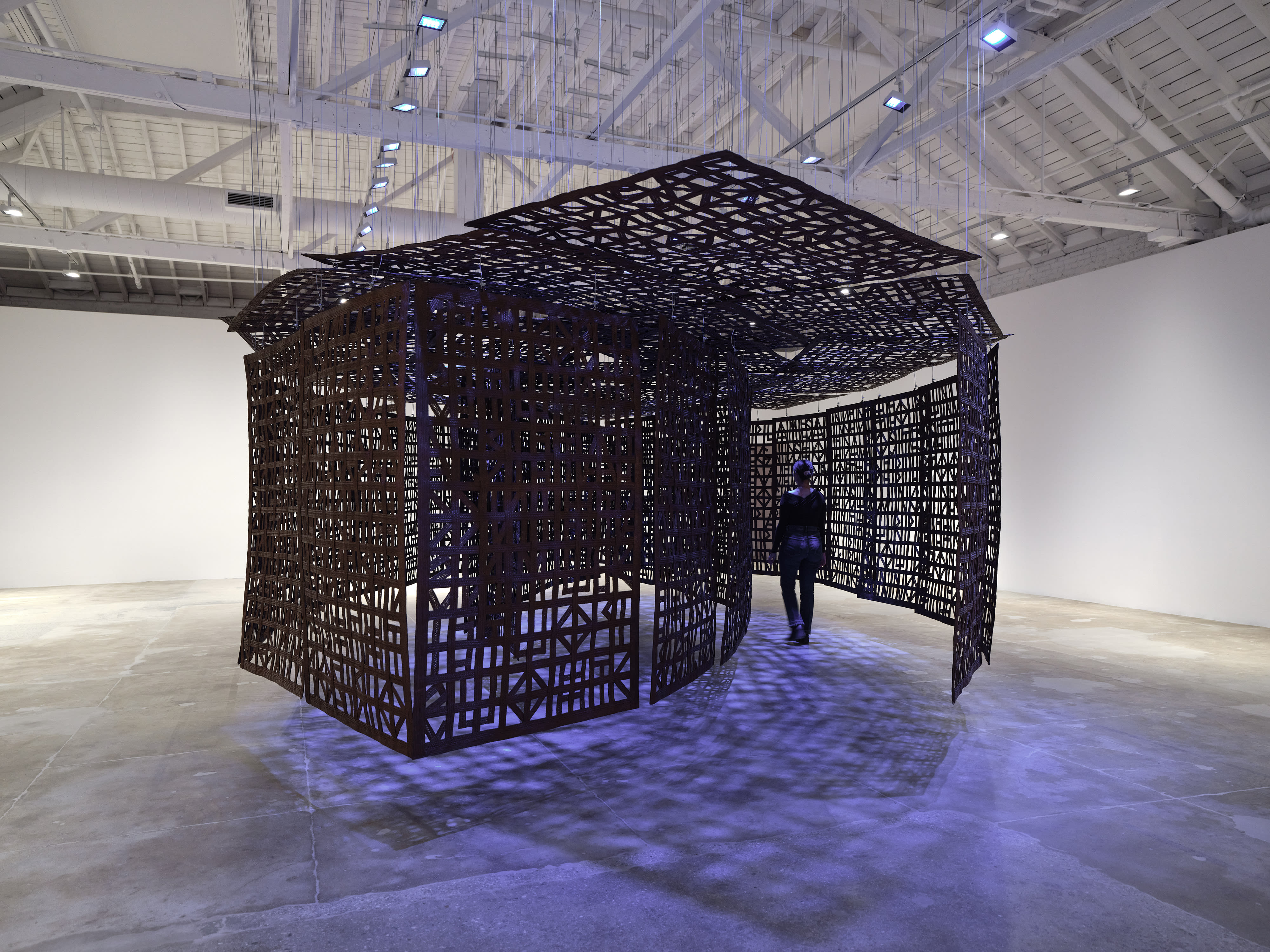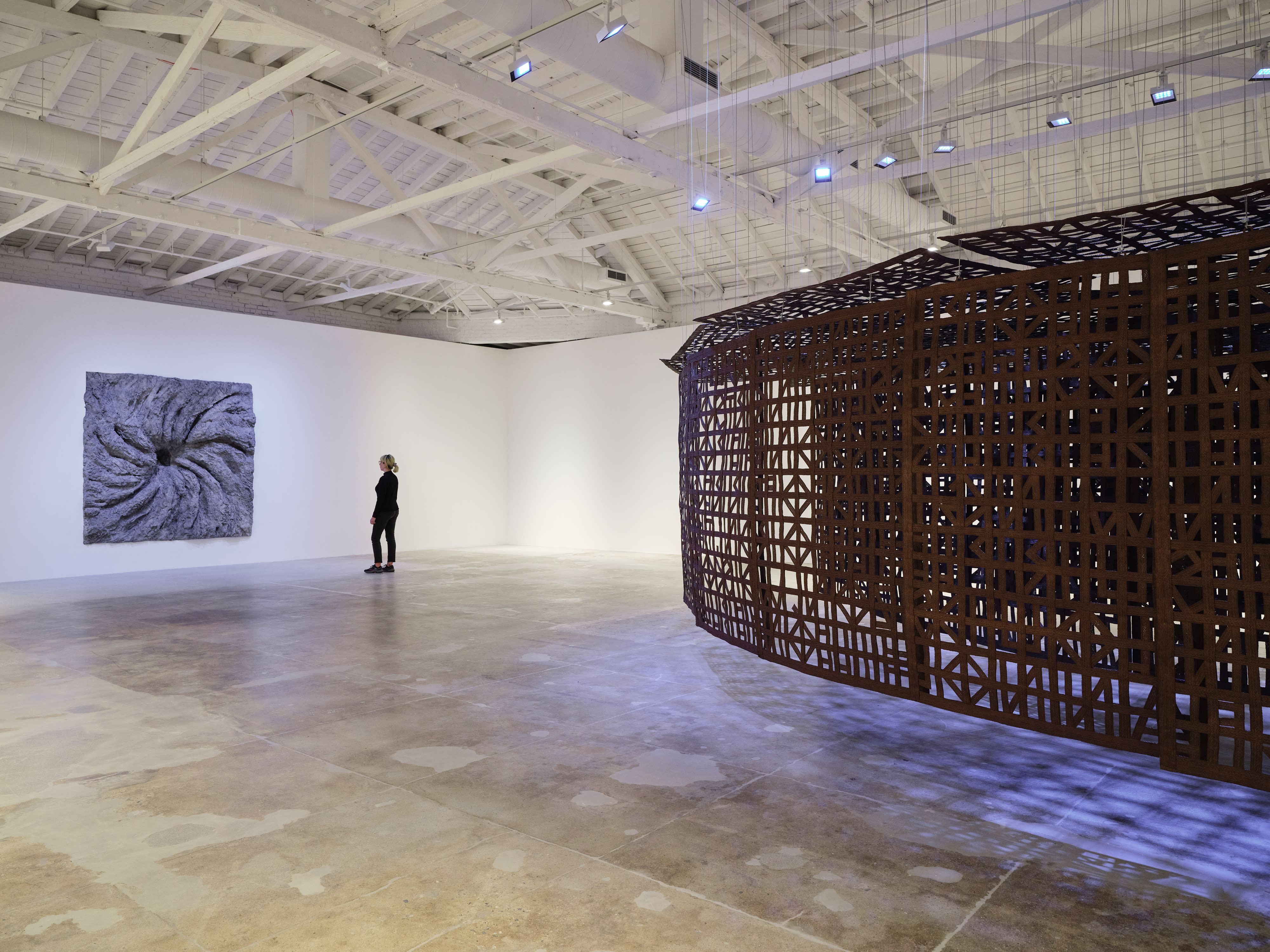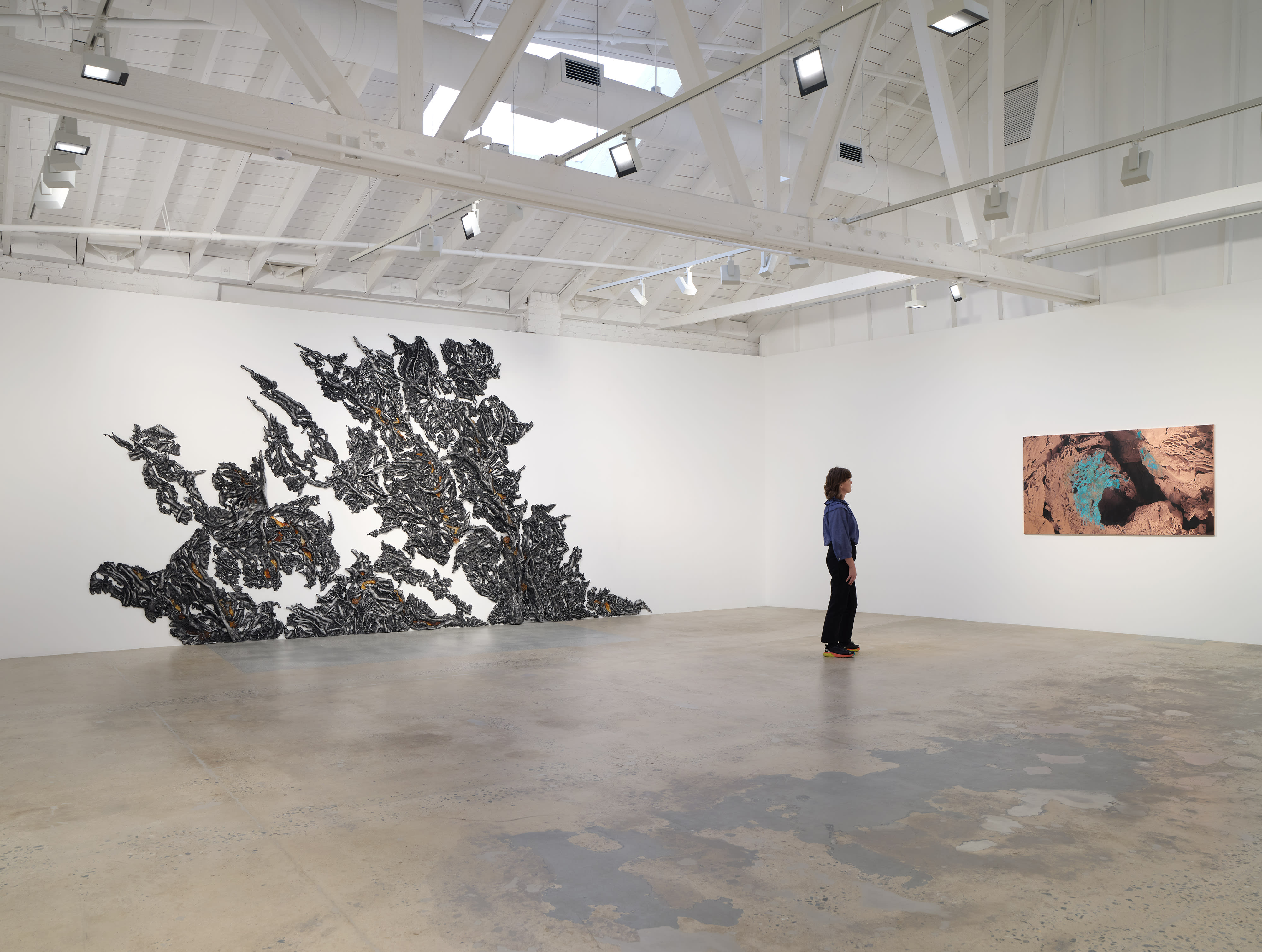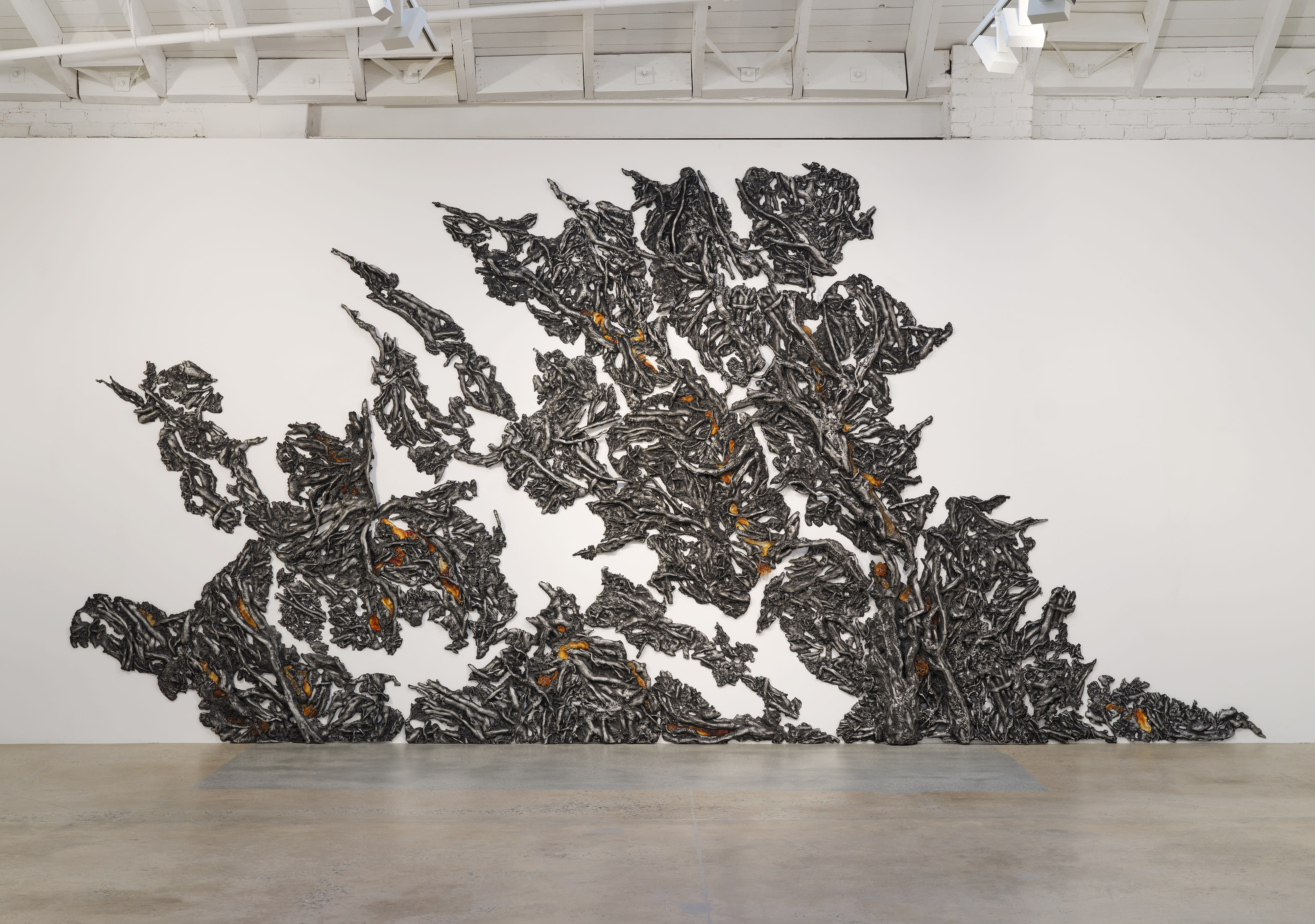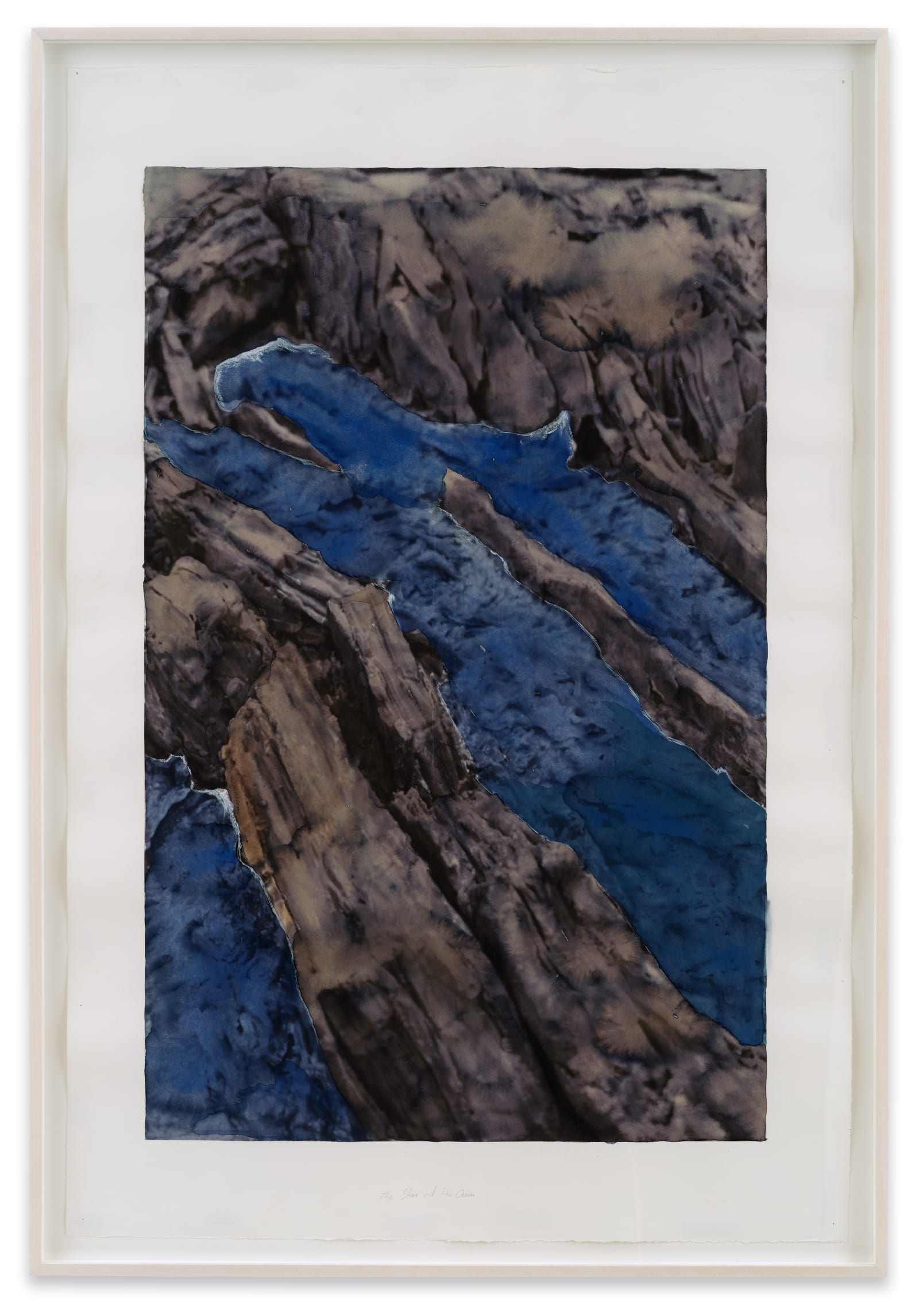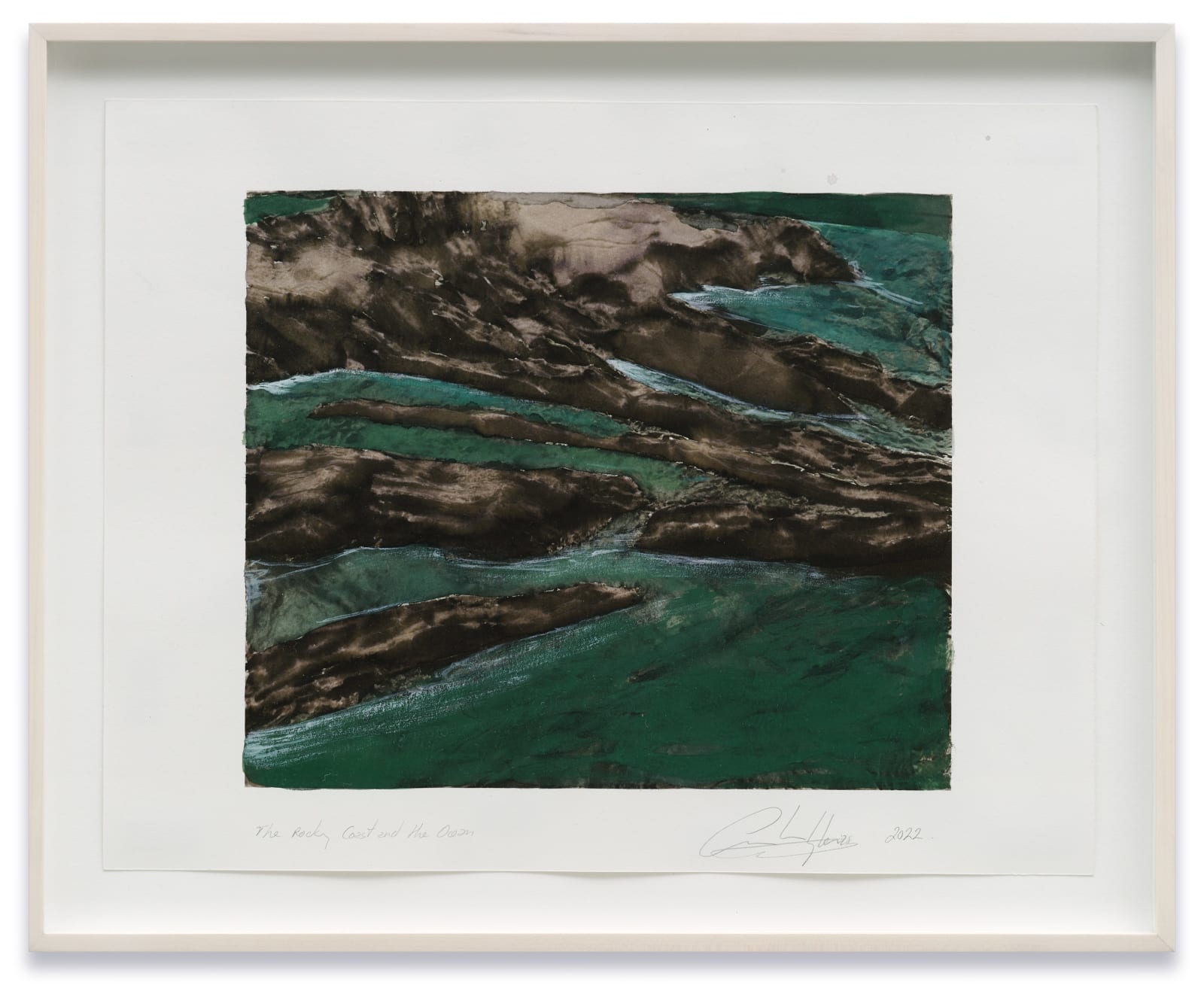Cristina Iglesias: ELLIPSIS
ELLIPSIS
Marian Goodman Los Angeles | 18 November - 27 January 2024
Our solo exhibition by Cristina Iglesias in our Los Angeles space features a large-scale installation alongside new sculptures and works on paper and on copper. Throughout her career, Iglesias has defined a unique sculptural vocabulary, building immersive and experiential environments that combine Minimalist sensitivity to form with complex narrative constructions to create thresholds and portals to the temporal and the imaginary.
Continuing her use of non-traditional materials, such as language, water and sound—as highlighted in recent important public projects in New York, Spain, and Houston—the works reinforce the notion of a living landscape. Iglesias’ trellised pavilions evoke imaginary interspaces, while the sculptures on view merge her interest in phreatic zones and the subterranean with outer space.

52 screens (22 horizontal, 30 vertical)
72 x 47 1/4 in. (183 x 120 cm) (each screen)

52 screens (22 horizontal, 30 vertical)
72 x 47 1/4 in. (183 x 120 cm) (each screen)

52 screens (22 horizontal, 30 vertical)
72 x 47 1/4 in. (183 x 120 cm) (each screen)

52 screens (22 horizontal, 30 vertical)
72 x 47 1/4 in. (183 x 120 cm) (each screen)

52 screens (22 horizontal, 30 vertical)
72 x 47 1/4 in. (183 x 120 cm) (each screen)
On view in the Main Gallery is The Pavillion of Dreams (Elliptical Galaxy), 2011-2016, shown for the first time in the United States. A suspended structure constructed from lattice screens, or ‘celosias,’ the work resembles a labyrinthine passageway. Comprised of 52 vertical and horizontal screens, it is made from iron braided wire, forming a filigreed chamber that the viewer can enter. The canopied ceiling and walls unveil fragments of text excerpted from Stanislaw Lem’s cult classic 1961 novel, Solaris. The inscriptions allow a viewer to ‘read’ the sculpture, entering a fictive space that materializes as an elliptical and enigmatic realm through language. Purple light throws shadows on the walls and floor of the room, dematerializing and rematerializing the sculptural support. The distinctive effect of the colored space recalls German Expressionist films in its use of mise-en-scene and illusionistic devices to reflect emotional states and societal anxieties. Just as the sentient ocean planet that gives Solaris its title serves as a symbol of the incomprehensible other, the installation is a visual analog for the experience of the intangible and the way it manifests for the viewer, transforming in shifting spaces of light and shadow.
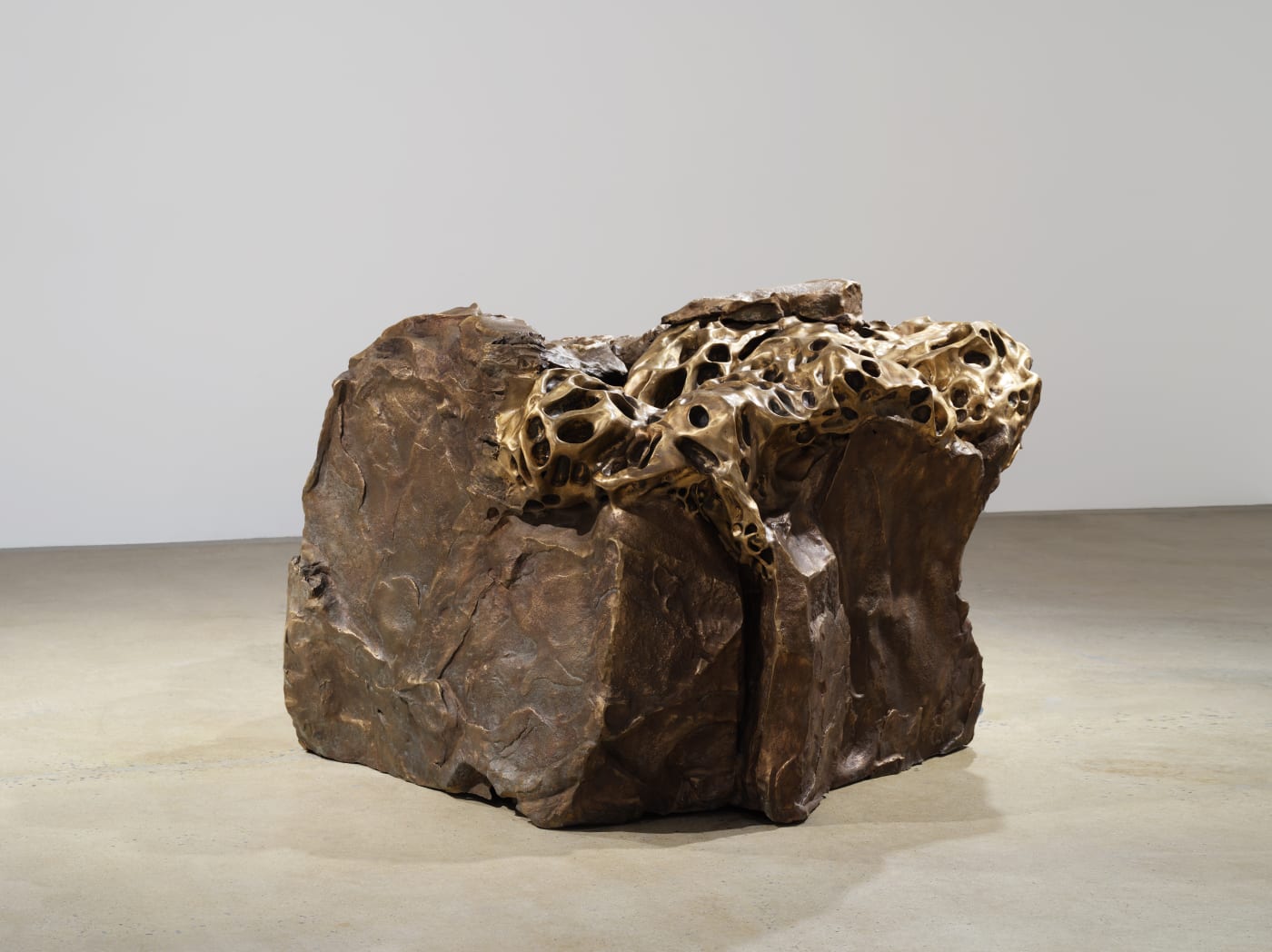

Entwined V (2017), created from cast aluminum patinated and policarbonated with pigment, is composed of several mural pieces that seem to grow from the ground along the walls. Reminding us that life lies under everything we stand upon, the pieces invade the walls, like dense invasive vegetation, aggressive hybrids of industry and nature.

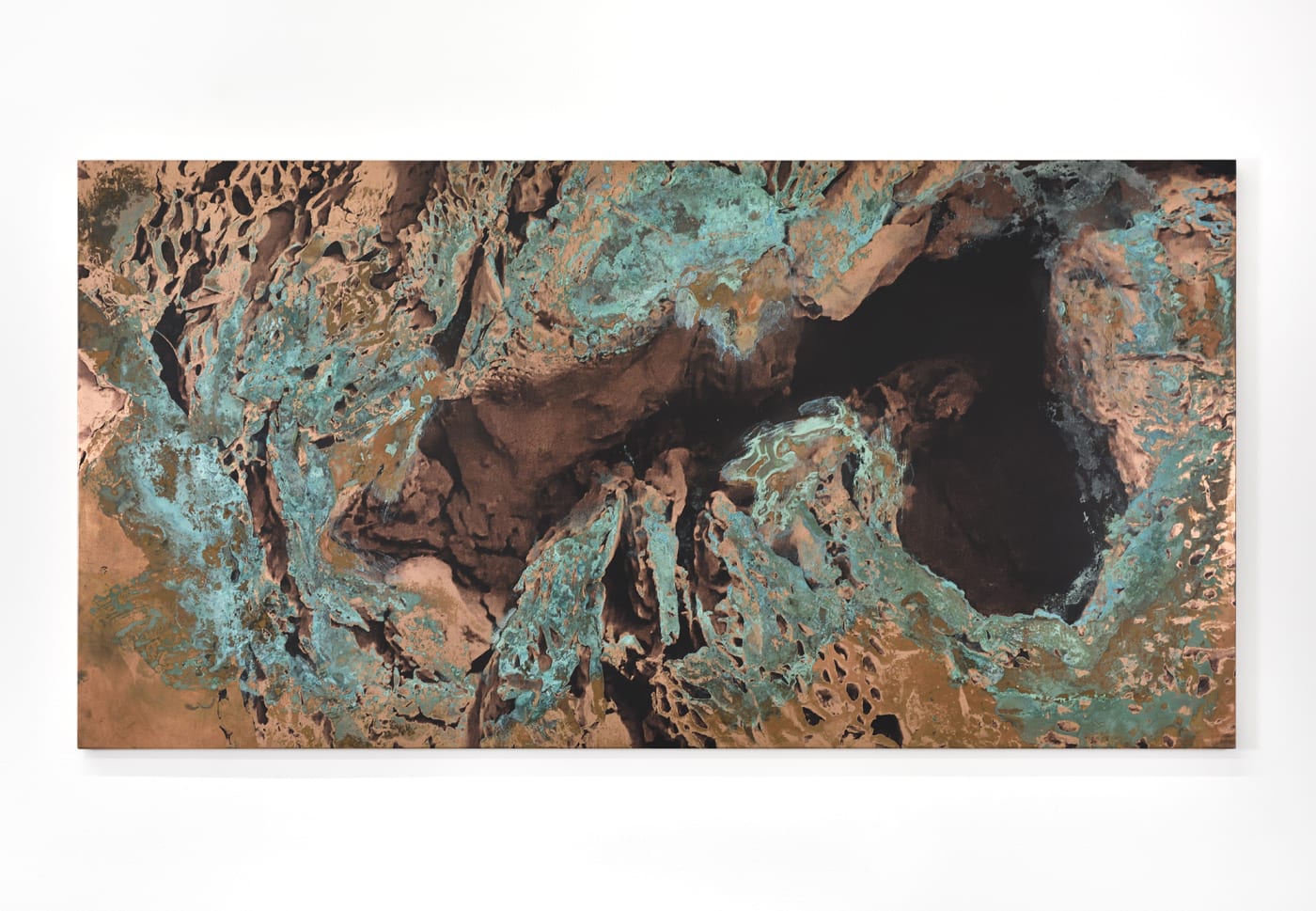
A new series of monotypes, Cave Studies, 2022, silkscreen and acid on copper, materially reflect the concept of encounters. The series emerge from the artist’s project Hondalea, 2021, a permanent artwork located within an abandoned lighthouse on a small Spanish island in the bay of San Sebastián. These works contrast the ephemerality of nature with materials that are, conversely, solid and stable.
This exhibition follows a series of major public projects by the artist including Wet Labyrinth (with Spontaneous Landscape), 2022, at the Royal Academy of Arts, London; Hondalea (Marine Abyss), 2021, an installation at Lighthouse at Santa Clara Island in San Sebastian, Spain, which transformed a defunct lighthouse into a vertiginous sculptural environment sunk into the island's bedrock; Landscape and Memory, her 2022 site-specific installation at Madison Square Park, New York, consisting of five pools featuring underground bronze reliefs embedded into the oval lawn, tracing an ancient stream that once flowed there, and Inner Landscape (the lithosphere, the roots, the water), 2020, commissioned by the Museum of Fine Arts Houston, in which a basin made up of a bronze labyrinth of roots and coastal rocks, which recalls tidal pools and becomes, in the artist’s words, “a portal to the underground, to the nature of the Earth, and to the strata of memory.”
Additional notable public commissions over the past decade include Sea Cave (Entrance) in Malta, 2021; Desde lo subterráneo (From the Underground) at the Botin Centre, Santander, 2017; The Ionosphere (A Place of Silent Storms) at the Norman Foster Foundation, Madrid, Spain, 2017; Forgotten Streams at Bloomberg Headquarters, London (2017) and Tres Aguas, Torre del Agua, in Toledo, Spain, 2014; Gates-Passage at the Museo del Prado, Madrid, Spain, 2006 and Deep Fountain at the entrance of the Museum of Fine Arts, Antwerp, Belgium, 2006.

Cristina Iglesias was born in San Sebastián, Spain in November 1956. She currently lives and works in Torrelodones, Madrid. In 2020 she was recipient of the Royal Architecture Prize, Royal Academy, London. Her work has been shown recently in solo exhibitions at Frederick Meijer Gardens and Sculpture Park, Grand Rapids, MI, 2023; Royal Academy, London, 2022; Centro Botín, Santander, Spain, 2018; Musée de Grenoble, France, 2016 and 2022; BOZAR, Centre for Fine Arts, Brussels, Belgium, 2014; in a large retrospective at the Museo Nacional Centro de Arte Reina Sofía, Madrid, Spain, 2013; and at Casa França, Rio de Janeiro, 2013; and Pinacoteca, Sao Paulo, 2008. Earlier solo shows have been exhibited at the Fondazione Arnaldo Pomodoro, Milan, 2009; Ludwig Museum, Cologne, 2006; Irish Museum of Modern Art, Dublin, 2003; Whitechapel Gallery, London, 2003; Museu Serralves, Fundaçao Serralves, Oporto, 2002; Guggenheim Bilbao, Spain, 1998 and Guggenheim New York, 1997. Iglesias has participated in a number of international exhibitions and has represented Spain at the 1986 and 1993 Venice Biennales and at the Sydney Biennale in 2012.
